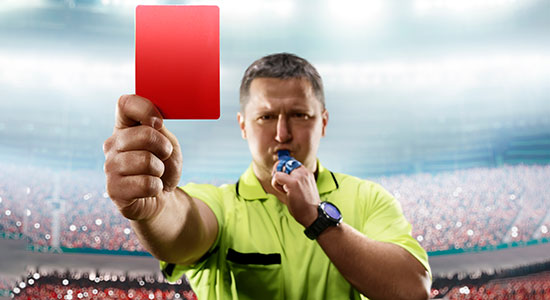
Dec. 19, 2018 – Wisconsin lawyers are familiar with the Rules of Professional Conduct set by the Wisconsin Supreme Court. But can a statute be used to impose discipline on a lawyer?
Question
I recently heard that a lawyer was disciplined for violating a provision in the family code.
I understand that the Rules of Professional Conduct are a basis for imposing discipline on lawyers – but how can a statute be used to impose discipline on a lawyer?
Answer
In “Disciplinary Standards in Case Law: Ignorance Is No Defense,” published in the Nov. 21, 2018, issue of InsideTrack, I discussed SCR 20:8.4(f), which says it is professional misconduct to “violate a statute, supreme court rule, supreme court order or supreme court decision regulating the conduct of lawyers.” In the article, I took a look at supreme court case law regulating the conduct of lawyers.
 Tim Pierce is ethics counsel with the State Bar of Wisconsin. Reach him by email or through the Ethics Hotline at (608) 229-2017 or (800) 254-9154.
Tim Pierce is ethics counsel with the State Bar of Wisconsin. Reach him by email or through the Ethics Hotline at (608) 229-2017 or (800) 254-9154.
In this article, we take a look at examples of discipline being imposed under SCR 20:8.4(f) for violations of statutes regulating the conduct of lawyers.
The question is based upon OLR Private Reprimand 2014-1. In that matter, a lawyer represented a client in an annulment proceeding. The court granted the annulment, but the lawyer failed to file the findings of fact, conclusions of law, and the judgment with the court within 30 days as required by Wis. Stat. section 767.251(2), resulting in dismissal. After a motion to reopen, the annulment was granted.
In addition to violating SCR 20:1.3, which requires lawyers to act with reasonable diligence, the lawyer was disciplined under SCR 20:8.4(f) for violating the relevant provision of the family code.
Need Ethics Advice?
As a State Bar member, you have access to informal guidance and help in resolving questions regarding Wisconsin’s Rules of Professional Conduct for Attorneys.
Ethics Hotline: To informally discuss an ethics question, contact State Bar ethics counselors Timothy Pierce or Aviva Kaiser. They can be reached at (608) 229-2017 or (800) 254-9154, Monday through Friday, 9 a.m to 4 p.m.
In OLR Private Reprimand 2014-9, a lawyer represented a couple in a Chapter 7 bankruptcy. The lawyer:
failed to report in the documents filed with the bankruptcy court the entire fee the couple paid to him for the bankruptcy and the adversary proceeding. This conduct was contrary to statutes requiring lawyers to report all fees received in contemplation of or in connection with a bankruptcy and thereby violated SCR 20:8.4(f), which provides that it is misconduct for a lawyer to violate a statute regulating the conduct of lawyers.
Another example of a lawyer disciplined for violating a procedural statute is found in OLR Private Reprimand 2003-15. The reprimand states:
By failing to serve the husband’s attorney with the motion papers in the custody and placement matter, the attorney violated SCR 20:8.4(f) which states; “It is professional misconduct for a lawyer to violate a statute, supreme court rule, supreme court order or supreme court decision regulating the conduct of lawyers.
The underlying statute violated in this matter is Wis. Stat. section 801.14(2), which provides in part:
Whenever under these statutes, service of pleadings and other papers is required or permitted to be made upon a party represented by an attorney, the service shall be made upon the attorney unless service upon the party in person is ordered by the court.
Another source of enforcement of SCR 20:8.4(f) is in connection with statues that regulate lawyers’ fees. OLR Private Reprimand 1991-20 provides:
Sec. 108.09(8), Stats., limits legal fees that can be charged in an unemployment compensation matter to 10% of the benefits at issue unless a higher fee has been approved by the Department of Industry, Labor and Human Relations (DILHR). An attorney charged a client a fee that was well in excess of this statutory limit without the approval of DILHR. The Board found the attorney had thereby violated SCR 20:1.5(a), which requires a lawyer's fee to be reasonable and SCR 20:8.4(f), which says it is misconduct to violate a statute that regulates the conduct of attorneys.
While there are relatively few examples of lawyers being disciplined for violating statutes, these examples illustrate the larger point: that SCR 20:8.4(f), which has no analogue in the ABA Model Rules, means that Wisconsin lawyers must be aware of standards of conduct set forth in the statutes, in addition to the Rules of Professional Conduct.
In Case You Missed It: Read Past Ethical Dilemmas
Ethical Dilemmas appears monthly in InsideTrack. Check out these topics from recent issues:
